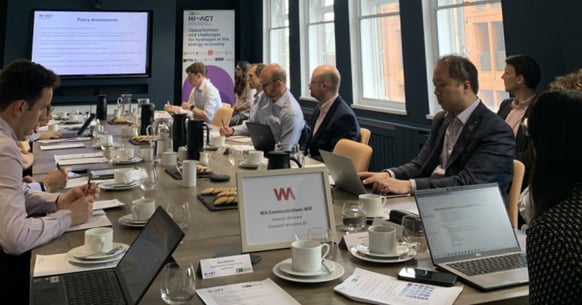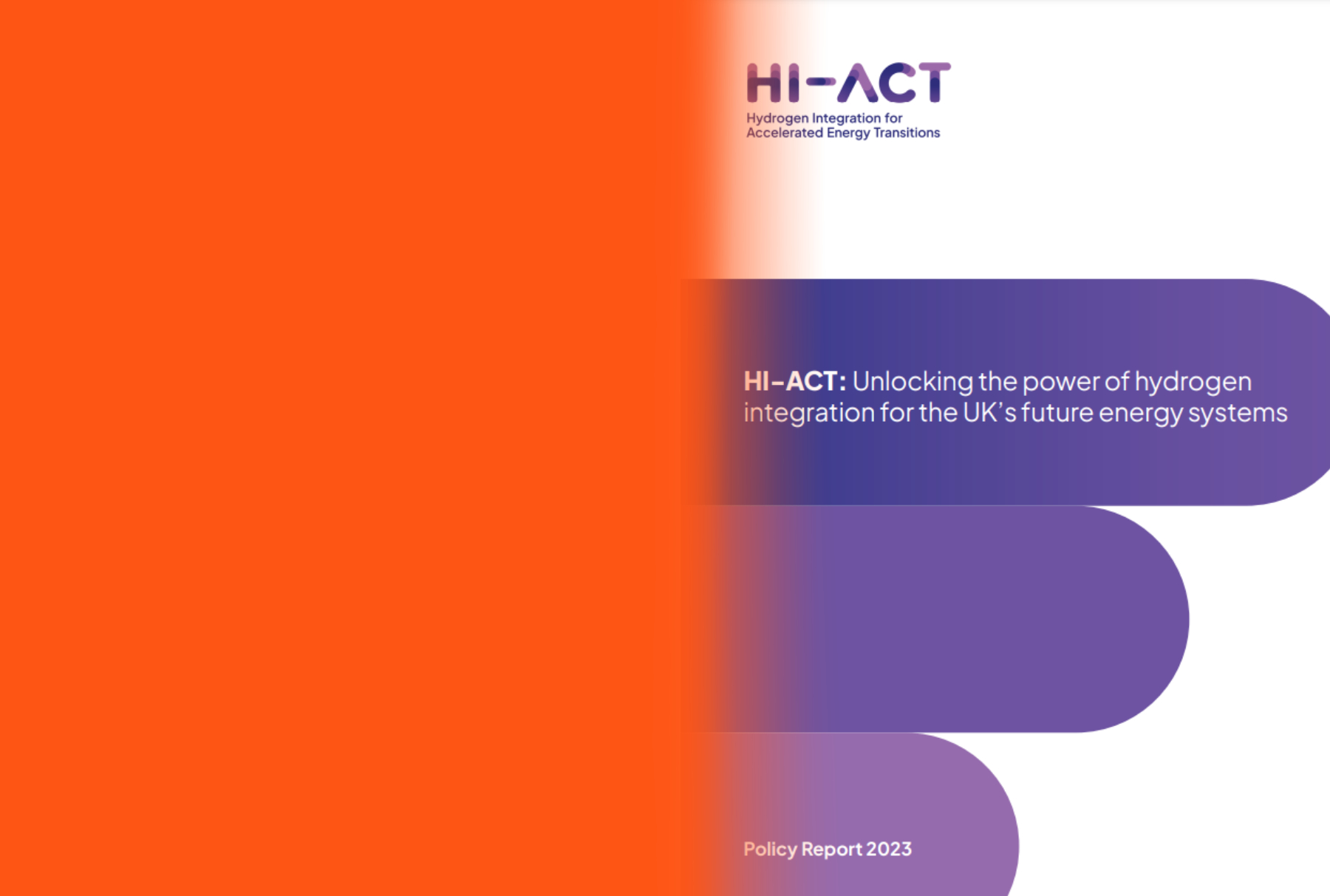The report, Unlocking the power of hydrogen integration for the UK’s future energy system, has been produced by the Hub for Hydrogen Integration for Accelerated Energy Transitions (HI-ACT) following a programme of engagement with key government officials.
HI-ACT is a £12.5m EPSRC-funded research hub led by Newcastle University. It aims to develop a better understanding of the potential pathways for integrating hydrogen in future energy use.
Through academic research, HI-ACT seeks to ensure that hydrogen is properly integrated by exploring the technical, environmental, social, economic, regulatory and political challenges facing both industry and policymakers. In October this year, it was awarded £5m to lead the new Northern Net Zero Accelerator - Energy Systems Integration for a Decarbonised Economy.
Developing hydrogen policy
HI-ACT’s new report follows an independent inquiry commissioned by the Department for Energy Security and Net Zero (DESNZ) earlier this year.
In response to the policy concerns raised by the DESNZ report, HI-ACT has engaged both political and industry stakeholders to ensure a collaborative and effective approach to their research. A policy workshop hosted by HI-ACT in May invited stakeholders to discuss the challenges and opportunities across the political and economic landscape. These discussions have helped to shape the report.
The report looks at improving industry and government collaboration to establish new ways in which to feed into future decision-making processes and better understand future scenarios that might arise from the transition to a low-carbon economy.

It also addresses key questions around hydrogen demand and infrastructure, to help determine where hydrogen infrastructure will be required, understand when it is needed, and how it will be delivered.
The report also highlights the need to develop business models to secure investment, through sharing best practice and fostering open dialogue.
Professor Sara Walker, Director of HI-ACT said: “HI-ACT is committed to delivering research which addresses the needs of our stakeholders. This workshop with policymakers has enabled us to better understand the policy questions around where, when and how to deliver appropriate hydrogen systems.”
Next steps
Following publication of the report, HI-ACT now looks to:
- Align its research priorities and timelines to support and inform key government decisions
- Work to ensure maximum efficiency within the hydrogen knowledge-sharing space
- Continue to facilitate wider knowledge sharing
Further details on these next steps can be found in the report here.
.jpg?length=582&name=hi-act-report-cover%20(1).jpg)

